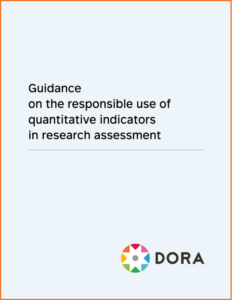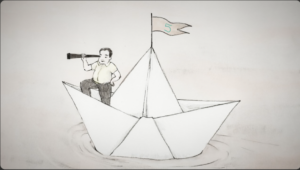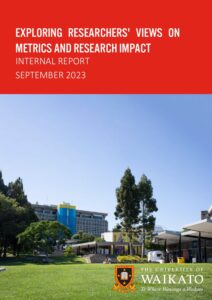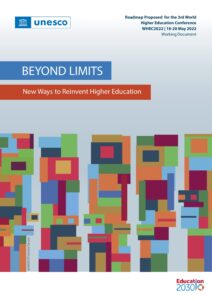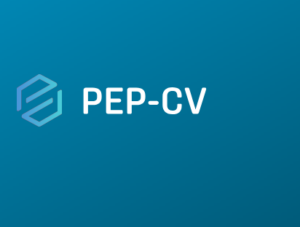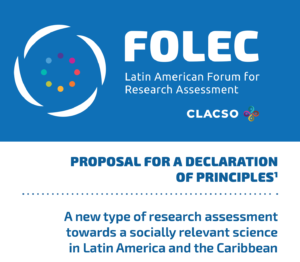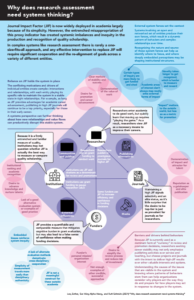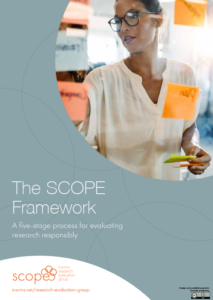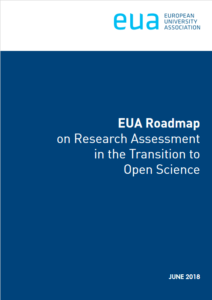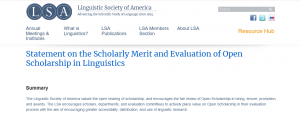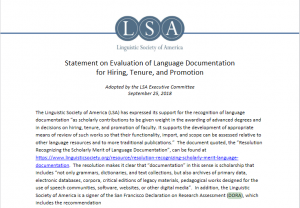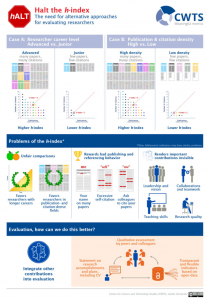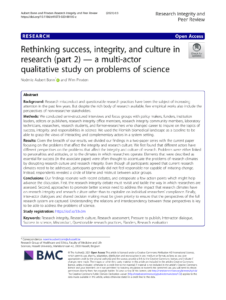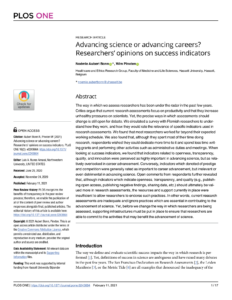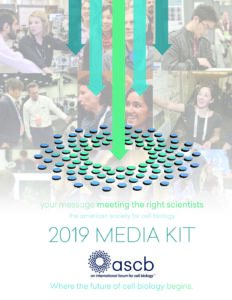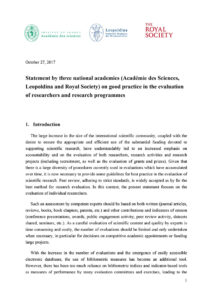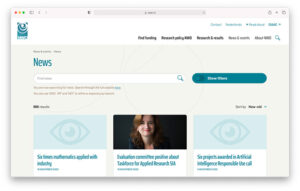A collection of materials to facilitate the development of responsible research and researcher assessment policies and practices.
Search and Filter
Resource type
Intended audience
Advocacy resourcesPolicies and guidancePosition papers
DORA-produced
For: FundersJournals and publishersProfessional societiesResearch institutesResearchers
2024
This document provides guidance on the use of several indicators (sometimes called metrics) used in research assessment: the Journal Impact Factor and other measurements of journals, citation counts, h-index, field-normalized citation indicators, and altmetrics. Five principles guide the use of these metrics: be clear, be transparent, be specific, be contextual, and be fair.
Advocacy resourcesTools
For: FundersProfessional societiesResearch institutesResearchers
2025
These short educational videos in animated and talking head formats provide an introduction to the h-index, a commonly used scholarly metric for assessing authors’ publication output and citation impact. The videos explain how the h-index is calculated, how it is used to assess researchers, and its key limitations. They highlight important considerations, such as disciplinary…
Advocacy resources
For: FundersJournals and publishersProfessional societies
2023
This internal report for the University of Waikato investigates researchers’ perspectives on metrics and their influence on research impact, highlighting a multifaceted view of the role these metrics play in the academic landscape. While researchers generally acknowledged the usefulness of metrics, they were concerned about the over-reliance on these metrics, which can lead to a…
Advocacy resourcesGood practicesPolicies and guidance
For: FundersProfessional societiesResearch institutes
2022
This document from UNESCO is a roadmap for higher education, prepared for the “3rd World Higher Education Conference (WHEC2022).” Within the roadmap are “signposts for co-creating more open, inclusive, equitable and collaborative higher education systems that democratize access and knowledge.” Recognizing the evolution of and advancements in higher education, UNESCO has outlined 5 sections discussing…
Initiatives
For: Professional societiesResearch institutes
2021
The Global Research Council (GRC) Responsible Research Assessment (RRA) working group, was established in 2021 to support the promotion and implementation of RRA practices in the international research and innovation system through the development of a collective understanding of RRA, and the sharing of guidance and best practices between research funding agencies worldwide. With a…
Good practicesInitiativesTools
For: FundersProfessional societiesResearch institutes
2024
The Young Universities for the Future of Europe (YUFE) Transforming R&I through Europe-Wide Knowledge Transfer (YUFERING) project is a comprehensive initiative aimed at transforming Research and Innovation (R&I) practices across Europe by facilitating widespread knowledge transfer. It seeks to bridge the gap between researchers, innovators, and stakeholders by promoting collaboration and communication through existing networks…
Tools
For: FundersProfessional societies
2024
The Peer Exchange Platform for Narrative-style CVs (PEP-CV) is a free and open resource for everyone in research and innovation to add to existing guidance on narrative CVs. As a not-for-profit initiative, the PEP-CV platform is a collaborative effort among funders, institutions, and researchers that fosters a culture of collaboration, mutual learning, and expands national…
Advocacy resourcesGood practicesPosition papers
For: FundersJournals and publishersProfessional societiesResearch institutes
There is a growing recognition that current evaluation metrics often fail to capture the breadth and depth of research impact. In hopes of addressing the reform needed in the research world the Global Young Academy, the InterAcademy Partnership, and the International Science Council have collaborated in conducting a global assessment of research evaluation perspectives. Their…
Good practicesInitiatives
For: Journals and publishersProfessional societiesResearch institutes
Progress towards more responsible research assessment requires implementing and supporting more equitable and transparent standards of practice in the scientific community. Some journals have been considering these changes in how they operate, one of which is PLOS Biology. This article discusses PLOS Biology’s commitment to increasing code sharing and publishing peer review files in 2024…
Position papers
For: Professional societiesResearch institutes
2022
Using a bottom-up approach, the Latin American Forum for Research Assessment (FOLEC) developed a proposal for a declaration of 10 principles that frame the discussion about research assessment in the Latin American and Caribbean (Latac) context. As such, the proposal outlines principles for assessment reform in Latac. These principles fall into the following categories: Principles…
Advocacy resources
For: FundersJournals and publishersProfessional societiesResearch institutes
2021
Ruth Schmidt and colleagues explain how systems thinking can advance responsible research assessment. In an infographic format, they identify external forces that reinforce the use of the Journal Impact (JIF) as a surrogate measure for research quality in academic career advancement, despite its well documented deficiencies as a tool for research assessment. By demonstrating schematically…
Tools
For: FundersProfessional societiesResearch institutes
2021
The International Network of Research Management Societies (INORMS) created a working group in 2018 to promote meaningful, responsible, and effective research evaluation practices. In 2019, iNORMS released the first version of SCOPE framework, an important tool to provide practitioners a how-to guide to implement responsible research assessment. In 2021, iNORMS Research Evaluation Working Group (REG)…
Position papers
For: Professional societiesResearch institutes
2018
The 2018 European University Association (EUA) roadmap was approved by the EUA Council at its meeting on 4 April 2018, in Zurich (Switzerland). This roadmap addresses the assessment of research outcomes, researchers and research units and organizations (laboratories, research centers and universities). The main objective of the roadmap is to raise awareness and support European…
Good practicesPolicies and guidance
For: Professional societiesResearch institutes
2021
The Linguistic Society of America (LSA) published a statement on their commitment to Open Scholarship and recommendations for the fair review of Open Scholarship in hiring, tenure, promotion, and awards. The statement defines Open Scholarship and outlines how LSA intends to apply principles of Open Scholarship: “The LSA encourages scholars, departments, and evaluation committees to…
Good practicesPolicies and guidance
For: Professional societiesResearch institutes
2018
The Linguistic Society of America (LSA) published a statement of recommendations concerning the appropriate means of assessment of varied research outputs. In the statement, the term “corpus” refers to the body of language documentation scholarship that is deposited in a language archive. The statement notes that “unlike traditional publications, documentation is not ordinarily peer-reviewed. Thus,…
Advocacy resources
For: FundersProfessional societiesResearch institutes
2021
The Centre for Science and Technology Studies (CWTS) studies bibliometric and scientometric tools to support research assessment reform and strategic decision making for developing science policy. In March 2021, the CWTS published an infographic on “problems with the H-index and reasons for integrating other contributions into evaluations”. This infographic gives different examples of how the…
Journal articles
For: FundersProfessional societiesResearch institutes
2020
The authors, Noémie Aubert Bonn and Wim Pinxten, conducted interviews and focus groups with a variety of Flemish biomedical stakeholders in order to survey and define success, integrity, and responsibilities in science. The stakeholders interviewed included policy makers, funders, institutional leaders, research integrity officers, editors, publishers, and researchers. In this paper, which is the second…
Journal articles
For: FundersProfessional societiesResearch institutes
2020
The authors, Noémie Aubert Bonn and Wim Pinxten, conducted interviews and focus groups with a variety of Flemish biomedical stakeholders in order to survey and define success, integrity, and responsibilities in science. The stakeholders interviewed included policy makers, funders, institutional leaders, research integrity officers, editors, publishers, and researchers. In this paper, which is the first…
Journal articles
For: FundersProfessional societiesResearch institutes
2020
A survey was conducted by Noémie Aubert Bonn and Wim Pinxten to understand how Flemish researchers work and how they would rate the relevance of specific research assessment indicators in career advancement and advancing science. Survey results suggested that current indicators used to assess career advancement (e.g., indicators of prestige like high journal impact factor…
Good practicesPosition papers
For: Professional societiesResearch institutes
2017
The Federation released a report in 2017 to support the ongoing conversation in Canada about the assessment of research impact in the Humanities and Social Sciences (HSS).
Good practices
For: Professional societies
2019
The idea for the San Francisco Declaration on Research Assessment began at the 2012 ASCB Annual Meeting. As one of the initial DORA signatories, the ASCB does not promote its publications by the Journal Impact Factor.
Good practices
For: Professional societies
2017
Three national academies issued a statement on good practice in the evaluation of researchers and research programs in October of 2017. The statement recognized the need for efficient, fair, and robust researcher evaluation, especially as the size of the research community continues to increase.
InitiativesPosition papers
For: FundersProfessional societiesResearch institutes
Dutch public knowledge institutions and research funders published a position paper ‘Room for Everyone’s Talent‘ rethinking their academic reward and recognition systems.

